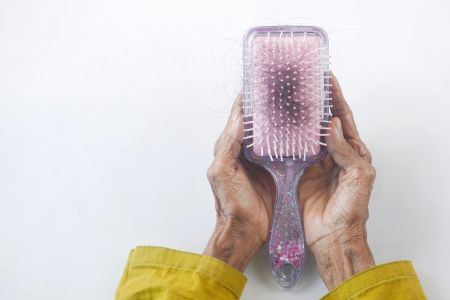Hair loss is more than just aesthetics—it’s about how it makes you feel. Whether it’s thinning hair on your head, sparse eyebrows, a patchy beard, or fewer eyelashes, hair loss can profoundly impact your confidence and overall well-being. It’s a sensitive and often challenging experience, and it affects everyone differently.
While regaining your hair can feel empowering, true confidence comes from within. In this post, we’ll dive deeper into the root causes of hair loss and explore ways to manage it effectively, because your journey to recovery is as unique as you are.
Hair loss doesn’t just happen—it has its reasons. Figuring out the "why" is the first step to finding the "how" of recovery. Here are some common culprits:
1. Medical Conditions:
- Alopecia Areata: An autoimmune disorder where the immune system attacks hair follicles.
- Cancer Treatments: Chemotherapy and radiation often lead to temporary hair loss.
-Thyroid Disorders: Both hyperthyroidism and hypothyroidism can trigger hair thinning.
2. Hormonal Changes: Postpartum hair loss, menopause, and hormonal imbalances caused by conditions like PCOS (Polycystic Ovary Syndrome) can lead to noticeable shedding.
3. Nutritional Deficiencies: A lack of essential nutrients such as iron, biotin, zinc, and vitamin D can weaken hair.
4. Stress and Lifestyle Factors:
- Physical or emotional stress can lead to telogen effluvium, a condition where hair prematurely enters the shedding phase.
- Overuse of harsh hair products, excessive heat styling, or tight hairstyles can also contribute to breakage and loss.
5. Genetics: Androgenetic alopecia, commonly known as male or female pattern baldness, is hereditary and affects a large portion of the population.
The Journey to Hair Recovery
Recovery from hair loss is not a one-size-fits-all process. The beauty of recovery is finding a path that’s tailored to you. Let’s explore some options:
1. Consult a Specialist: Seek professional advice from a dermatologist or trichologist to diagnose the root cause and create a tailored treatment plan.
2. Prioritize Nutrition: Focus on a balanced diet rich in protein, healthy fats, vitamins, and minerals. Foods like eggs, nuts, spinach, and salmon can promote hair health.
3. Consider Hair Growth Products: Products containing ingredients like biotin, minoxidil, castor oil, and rosemary oil may help stimulate hair growth.
4. Gentle Hair Care: Avoid harsh chemicals, tight hairstyles, and excessive heat. Use mild shampoos and conditioners to keep your hair hydrated and nourished.
5. Stress Management: Incorporate relaxation techniques such as yoga, meditation, or exercise to reduce stress and improve overall well-being.
6. Explore Medical Treatments: Options like PRP (Platelet-Rich Plasma) therapy, hair transplants, or laser therapy might be suitable for some individuals.
We’re all different: hair loss affects everyone differently. Some may find their solution in over-the-counter products, while others may require medical treatments or lifestyle changes. It’s vital to remain patient and avoid comparing your progress to others. Your body is unique, and your hair recovery journey should be tailored to your specific needs.
At Pure Health Spot, you’ll find natural remedy products crafted to support your hair growth journey. From nutrient-rich oils to herbal treatments, our range is designed to nourish your hair naturally and effectively. Pure Heath Spot is here for you every step of the way.
https://www.purehealthspot.com/beauty-care/hair-skin-oils
Embrace the Journey—stay patient, stay kind to yourself, and celebrate every little victory along the way.

